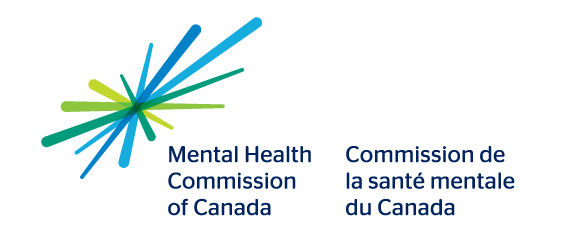COLLABORATIVE MENTAL HEALTH CARE
CONFERENCE 2013

Thank you to everyone who attended and participated in the 14th Canadian Collaborative Mental Health Care conference!
Presentations
Thursday, June 27/jeudi 27 juin
Plenary Sessions/Sessions plénières
Conférencier invité: Pour plus d’équité et de résultats en santé mentale au Québec: La perspective du Commissaire àla santé et au bien-être vis-à-vis de l’amélioration de la performance du système de santé et de services sociaux – Robert Salois
Keynote speaker: Toward greater equity and results for mental health: Health and Welfare Commissioner’s perspective for the performance appraisal for the health and social health services system – Robert Salois
Concurrent Sessions Block A/Sessions simultanées Bloc A
A2.1 Projet pilote régional d’accès priorisé à son médecin de famille: Moderniser la pratique médicale en interdisciplinarité pour assurer une prise en charge optimale de la clientèle atteinte de maladies chroniques et des problèmes de santé mentale – Pascale Cholette et Edith Noreau
A3.1 La complémentarité des compétences des intervenants et des familles: Une stratégie pour favoriser la collaboration dans les pratiques en santé mentale - Marie-Hélène Morin et Michel Houle
A3.2 Soutenir les mères souffrant de troubles mentaux dans leur rôle maternel: Enjeux de collaboration et de concertation entres les partenaires – Lucie Hébert, Samuel Harper, Julie Blouin et Brigitte Vachon
A5.2 Repairing the holes in the net: Using communities of practice to strengthen collaboration – Judie Bopp and Nancy Poole
A6.1 Child & youth mental health: “Who’s on your team?” – Brenda Mills, Debbie Wellum, Mun Cho and Angela Mazza-Whelan
Concurrent Sessions Block B/Sessions simultanées Bloc B
B1.1 (partie 1) Projet Cible Qualité II: Une opportunité, une approche par étape – Denis Chabot, Lianne Lamy Monnot, Sylvie Cloutier et Claire Gamache
B1.1 (partie 2) Projet Cible Qualité II pour les troubles anxieux et dépressifs en 1ère ligne: regard sur la collaboration interprofessionnelle – Pasquale Roberge, Hélène Brouillet et Louise Fournier
B1.2 Formation 1-2-3: Quand la formation contribute au continuum des services en santé mentale – Annie Maheux-Lessard, Fatima Azzahra Lahrizi, Caroline Lafond et Luc Nicole
B2.3 L’urgence, une opportunité pour les soins de collaboration – Natalie Bremshey, Sylvie Picard et Claire Gamache
B3.1 Enhancing addictions and mental health collaboration – Francine Knoops
B3.2 Absenteeism, presenteeism and psychiatric symptoms: Is trouble in the work domain a significant predictor in primary care assessment and referral? – John M. Haggarty, S. Kathleen Bailey and Sara Kelly
B4.1 The Ottawa Experience: A review of the early development of pilot youth mental health groups offered in collaboration between social workers from Shared Mental Health in primary care and the Transitional Youth Mental Health Services – Donna Klinck and Catherine Bissinger
B4.3 Care needs and social inclusion of maltreated youths affected by psychiatric disorders: Clinical impasse or collaborative deadlock? – Danielle Nadeau, Isabelle Simard, Julie Tremblay-Roy et Audrey-Anne Gagnon-Harvey
B6.1 The use of participatory research to promote dialogue in a mental health institution – Orly Estein, Janina Komaroff, Melissa Park, Ronna Schwartz, Janet Stewart and Luis Vacaflor
B9 L’importance d’offrir des moyens pour soutenir la personne dans la communauté – Alex Chayer
Concurrent Sessions Block C/Sessions simultanées Bloc C
C1.2 Genèse et contribution des communautés de pratique en santé mentale – Mario Poirier
C2.1 The evolution of collaborative mental health on P.E.I.: Experience, good practice, and design – BobbiJo Flynn and Colin Campbell
C4.1 Le Programme de transition Paul-Pau pour les jeunes de 16 à 20 ans – Marc-André Chatigny, Jocelyn Bisson et Jézabel Renaud
C5.2 Partenariat de soins en santé mentale – Sandra D’Auteuil, Laurentiu Fulicea et David Gaulin
C6.2 The nurse practitioner and psychiatrist as collaborators in mental health: What we needed to know to make it work – Deborah McGoldrick and John Haggarty
C7.1 Eating disorders: The expanding spectrum between primary and secondary care – Pallavi Nadkarni
C7.2 Using knowledge translation for a province-wide collaborative model of care for people with eating disorders –Alexis Pearson, Jessica Spagnolo, Shiri Freiwald, Shalini Lal, Nicole Lahaie, Howard Steiger, Myra Piat and Mimi Israel
C9.1 Collaboration and the consumer: Exploring helpful care from the perspective of children with suicide risk factors and their parents – Marjorie Montreuil, Catherine P. Gros, Kat Butler and Michal Stachura
C9.2 Evaluation of the Ottawa-Carleton Transitional Youth Program: Transitional program based on a shared care management model – Katharine Gillis
C9.3 Child and youth collaborative mental health care: A review of models and exchange of ideas – Blair Ritchie, Helen Spenser, Brenda Mills, Peter Kondra, Sari Ackerman and Paula Cloutier
C10.1 Contrer la stigmatisation dans le réseau de la santé – Esther Samson, Sylvain D’Auteuil, Yves Blanchette et Anne-Marie Bachand Bastien
C10.2 La prévention: La clé en matière de santé mentale des jeunes: Savoir reconnaître les facteurs de risque et les signes avant-coureurs de psychose: le refer-o-scope – Marie Villeneuve et Francine Dubé
Friday, June 28th/vendredi 28 juin
Keynote speaker/Conférencier invité: Sowing the seeds for cultural change: From an idea to engagement– Chris Gibbs
Keynote speaker/Conférencier invité: Tangos, complexity and Kierkegaard – the journey of collaboration– Nick Kates
Concurrent Sessions Block D/Sessions simultanées Bloc D
D4.1 Doing ‘to’, ‘for’ or ‘with’?Weaving a complex web for collaborative education – Linda Bayers, Ajantha Jayabarathan, Lynette Reid and Joseph Sadek
D4.2 Knowledge translation of collaborative care – Dan Bilsker, Elliot Goldner and Nicholas Watters
D4.3 Disseminating practices in a complex world: the case of mood self-management – Dan Bilsker
D5.2 Des orientations ministérielles jusqu’au soutien à l’implantation d’une 1ère ligne forte – Louise Latulippe, Johanne Gravel, Dominique Harvey et Michel Gilbert
D7.1 A partnership between outpatient dialectical behaviour therapy (DBT) specialty services and primary care mental health program to build capacity and efficiency in delivering emotion regulation skills for challenging patients– Jackie Bootsma, Karen Wisdom and Tom Alexander
D7.2 Creating greater collaboration by utilizing motivational interviewing as a common language within an inter-professional practice team – Barbara Cantwell, Cynthia Forrest and Brad LaForme
D8.2 Making connections: Supporting women with experiences of violence, substance use and mental health concerns – Jill Cory, Louise Godard, Alexxa Abi-Jaoude and Naomi Armstrong
D9.1 LINK: The Adult ADHD Program – Eric Giguère and/et Larry Klassen
D9.2 Le coffre à outils PSY – Benoit Des Roches
D9.4 Réseau d’échange de savoirs pour transformer les services de santé mentale – Valérie Coulombe et Pierre Léouffre
D10.1 Mental health bed registry system transformation through collaboration and coalitions – Shailesh Nadkarni
D10.2 Collaborating, co-managing and facilitating metabolic improvement in patients with severe mental illness (SMI) – Anne Marie Creamer, Kimberly Chenier, Claudia Lamschtein and Joanne Tynski
D10.3 Challenges in implementing depression self-care interventions for adults with chronic physical illness - Jane McCusker, Martin Cole, Tamara Sussman and Mark Yaffe
Concurrent Sessions Block E/Sessions simultanées Bloc E
E5.1 Une expérience de soins de collaboration dans le sud-ouest de Montréal – Serge Ouellette et Christine Archambault
E5.2 Burnout et réadaptation, une combinaison gagnante pour un retour au travail harmonieux – Nouchine Dardachti
Program
Click here to view the complete conference program.
Click here to view the program of concurrent sessions on
Day 1, Thursday, June 27th.
Click here to view the program of concurrent sessions on
Day 2, Friday, June 28th.
Click here to view the 2-day program summary.
Concurrent session presentations listed in English in the program will be presented in English only, and those listed in French in the program will be presented in French only. All plenary sessions will have simultaneous translation.
Please note that the program is subject to change.
Please click here for keynote speaker information.
Click here to view poster presentations
Click here to view poster presentation summary




